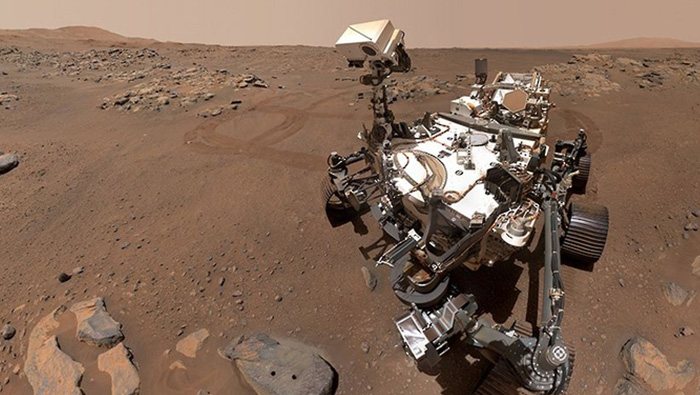
Washington: Nasa’s Perseverance rover, the six-wheeled robot, on Tuesday will see a big moment in its mission on Mars as it will start to climb up an ancient delta feature in the crater where it landed.
It will roll uphill, stopping every so often to examine rocks that look to have the best chance of retaining evidence of past life on the planet.
On its way back down, Perseverance will collect some of these rocks, placing the samples at the base of the delta to be retrieved by later missions.
The goal is to bring this material back to Earth in the 2030s for detailed inspection.
"The delta in Jezero Crater is the main astrobiology target of Perseverance," said deputy project scientist, Dr. Katie Stack Morgan.
"These are the rocks that we think likely have the highest potential for containing signs of ancient life and can also tell us about the climate of Mars and how this has evolved over time," she said.
The rover made its spectacular landing in the middle of Mars' 45km-wide Jezero Crater on 18 February 2021.
Since then it's been testing its tools and instruments, flying an experimental mini-helicopter, and gathering a general impression of its surroundings.
But the robot's chief purpose in going to the near-equatorial bowl on the Red Planet has always been to study the huge mound of sediments in the west of Jezero.
Long suspected to be a delta, based on satellite imagery, Perseverance's initial observations on the ground have now confirmed this assessment.
A delta is a structure built up from the silt and sand dumped by a river as it enters a wider body of water. The sudden deceleration that occurs in the river's flow allows anything carried in suspension to fall out.
In Jezero's case, the wider body of water was very probably a crater-wide lake that existed billions of years ago.
"Rivers that flow into a delta will bring nutrients, which are helpful for life, obviously; and then the fine-grained sediment that is brought and laid down at a high rate in a delta is good for preservation," explained mission scientist Prof Sanjeev Gupta from Imperial College London, UK.
Establishing the facts of life on Mars will therefore have to wait for the rover's rock collection to be brought home for the type of rigorous investigation only the biggest laboratories are equipped to carry out.
"The claim that there is microscopic life on another planet in our Solar System is an enormous claim. And so the proof needs to be enormous as well," said Jennifer Trosper, Nasa's Perseverance project manager.
Nasa, together with the European Space Agency, is in the advanced stages of planning the missions required to go and retrieve the depot. These ventures, which will incorporate another rover, a Mars rocket and carrier spacecraft, should be launched towards the end of this decade.